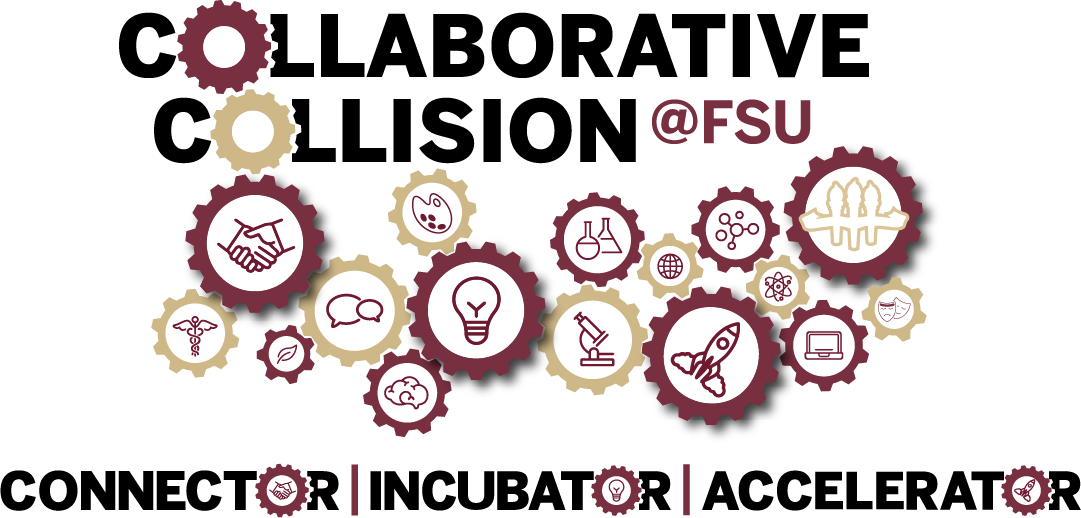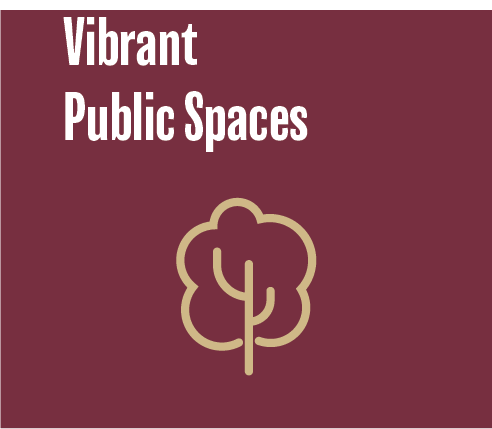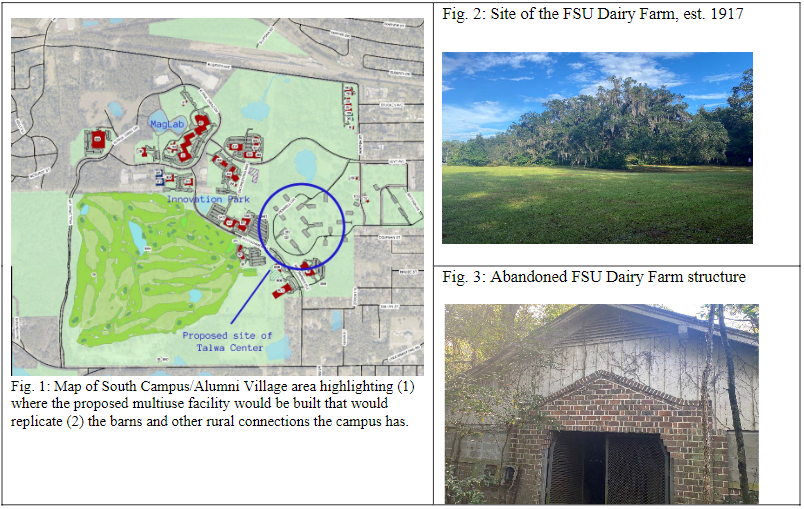
Rural Innovation
Through Collaborative Collision, Florida State University is building the interdisciplinary teams needed to solve complex challenges. We build connections around shared interests and complementary expertise, guide these connections into collaborations, and fund promising new ideas that accelerate discovery, innovation, and creativity.
This semester we’re turning our attention to rural innovation and exploring challenges facing people and communities defined mainly by the fact that they’re not cities. In the US alone this accounts for over 60 million people, and the vast distances and low population density that are characteristic of rural areas mean that they face familiar challenges in unique ways.
Each of our teams has completed an intense, 10-week Incubator process to understand their Challenge, develop a Project, plan for Impact, and come together as a Team. At Collaborative Collision: Accelerator they'll share their proposed solution, and tell us how they plan to explore a complex solution to a complex challenge facing rural communities.
Accelerator Finalist

Challenges
Rural spaces face population declines, negative job growth, and other social and economic challenges exacerbated by media narratives thatportray them as unsafe and poor; according to the Brookings Institute, their reports are not only imprecise but also are harmful to our collective future (Love & Loh, 2020). According to the National Trust for Historic Preservation, thousands of schools, churches, post offices, and other landmarks in rural communities continue to disappear rapidly if they are not preserved (Leggs, 2018). In the next year, our team envisions creating a 2-to-3-acre multipurpose center, Talwa, in one of Tallahassee’s most neglectedcommunities with rural roots, FSU’s former Alumni Vill age (Fig. 1 & 2). We plan to use material from the original FSU Dairy Farm barns (Fig. 3) to construct the center near the pad sites, parking surfaces, and existing infrastructure close to FSU existing athletic and academic assets, the FAMU/FSU College of Engineering, Innovation Park, the National High Magnetic Field Laboratory, and those living in the Providence neighborhood. This space was chosen because of its connection to FSU’s rural roots and its auspicious development future as well as the opportunity to reckon with its proximity to the FSU Police Department, the hub of campus safety and security, and socioeconomically depressed neighborhoods nearby systemically riddled with the criminal legacies poverty often leaves in its wake.

Project
On the uncededland of the Apalachee, Mascogo, Miccosukee, Muscogee, and Seminole, we will honor not only their histories and those of former residents of the community that was Alumni Village but also create a mixed-use “village square” on Tallahassee’s oft-neglected southside. Talwa, a portmanteau of the Muskogee word for village and the Japanese word for harmony, will challenge the misperception of rural spaces as homogenous and will serve as an art, recreational, and educational site for public gatherings that promote “being outside together” at a time when pandemic spikes, polarizing political views, and misnomers about various valences of identity and ideology threaten to divide us. Conceptually, Talwa Center will bring communities together for exchanges that promote the cross-pollination of ideas and innovation as well as a healthy community lifestyle for all involved. Ranging from cultural food festivals and recreational opportunities to science/technology workshops and community discussions, Talwa Center will serve a range of community needs throughout the year while also taking advantage of the open space and existing FSU Alumni Village infrastructure.
We are requesting a funding of $99,000 as seed money from FSU Office of Research to perform the following activities in the next 12 months. In particular, we will (a) conduct focus groups and field observations to better understand the needs, wants, and potential problems for Talwa Center, (b) write a grant proposal to the United States Department of Agriculture’s Rural Placemaking Challenge for federal funding, (c) connect with FSU, FAMU, TCC, and other local nonprofit and government organizations to establish outreach programming, create partnerships for cultural festivals and musical/theater performances, and display art and cultural pieces from communities we seek to unite, and (d) interface with the FSU administration and local government to identify and incorporate the site into the FSU campus master plan and the new Airport Gateway project.
Impact
For FSU, Talwa Center will serve as a host of multidisciplinary, multigenerational, and multicultural discourse that further advances FSU's strategic plan goals by leveraging community members’ similarities and differences. This proposed development will be the first to employ an Anchor-plus model to develop a multipurpose space that promotes meaningful exchanges among rural, urban, and international communities. Talwa Center would serve them by providing cultural events, educational opportunities, and physical activities that draw groups together in spaces designed with social distancing needs that may arise in mind. In short, Talwa Center aims to become a hub for international students and faculty and those living in Providence, Callen, and elsewhere on the southside, a haven for individual and collective introspection, and a means of strengthening our collaborative bonds with FAMU and business partners involved in the Airport Gateway Project and Project Alpha.
|
Ruby Lee (PI) College of Business |
Amy Chan Hyung Kim College of Education |
|
Richard D. Waters College of Communication & Information |
L. Lamar Wilson Department of English |
|
Kim Gabbard Real Estate Foundation |
|

